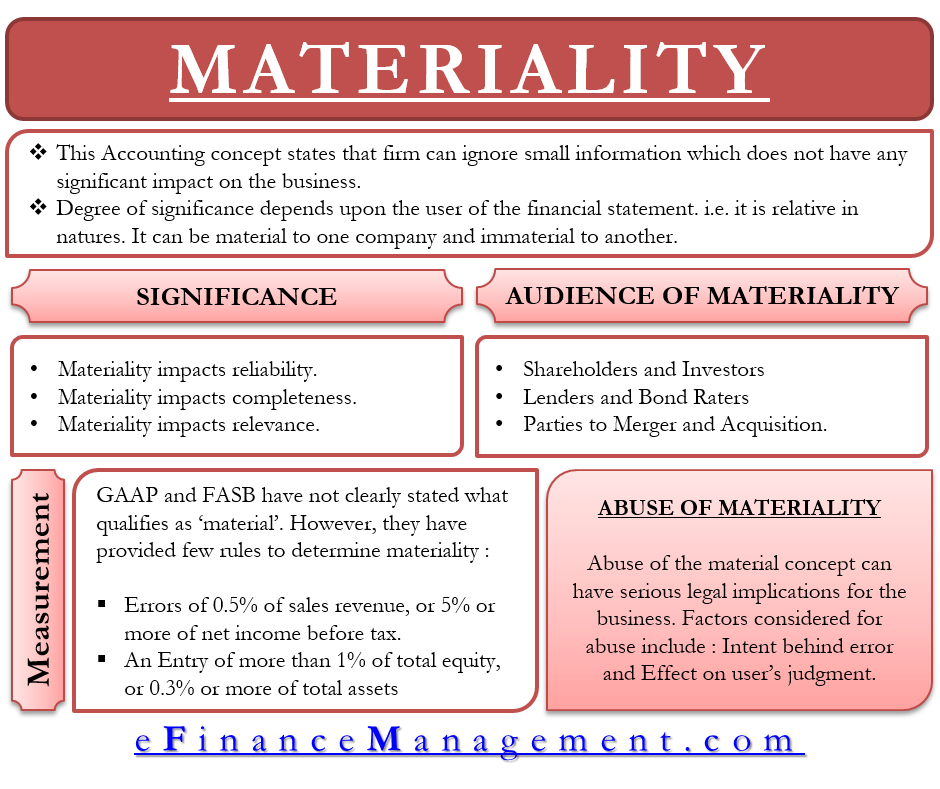Many years ago I learned the term “materiality” in accounting practice. It is defined as:
Materiality is an accounting principle which states that all items that are reasonably likely to impact investors’ decision-making must be recorded or reported in detail in a business’s financial statements using GAAP standards. Essentially, materiality is related to the significance of information within a company’s financial statements. If a transaction or business decision is significant enough to warrant reporting to investors or other users of the financial statements, that information is ‘material’ to the business and cannot be omitted.
When CFOs and CEOs sign-off on financial statements, they include the information that is “material” to investors’ interests, and leave out what they judge to be immaterial to investors’ interests. Sometimes these executives make errors and get caught by investors, analysis, government officials, or whistleblowers.
Let’s take this concept of materiality and apply to the way most CEOs think about other things that cost the company money. Things that involve employees.
Top business leaders make other judgments about what is “material” to the success of the business. One such judgment is related to training and employee development. Leaders recognize that there are many costs of business they would rather avoid, but must spend the money to keep up with other companies.
Since most big companies offer employee training and development, others are forced to do so as well to maintain competitiveness for attracting talent. Employee training and development also exists because that is what employees expect from their employer, especially if it is a big company.
The executive mindset is that if training and employee development produces some positive results for the company, then good. If not, that is okay too. But when times get tough, training and employee development budgets for rank-and-file employees is one of the first things to get cut. That tells you the money budgeted for training and employee development is seen by top leaders as mostly immaterial to the success of the company.
That brings us to Lean management. We have amassed plenty of evidence to prove that Lean management is not material to the success of the business. That is true in the past as well as now, though it is possible that could change in the future. One can either accept the immateriality of Lean or understand why that is with an eye towards increasing its materiality.
In the meantime, there is a new Lean Enterprise Institute-led conference, “The Future of People at Work Symposium,” whose focus is “exploring the future of people at work” to “create a future workplace with people at its core and where they thrive.” For sure there will be some business leaders interested in this.
The Symposium is designed to provide an understanding of these changes, foster discussion on their implications, and generate actionable ideas to create a future workplace with people at its core and where they thrive.
But in the main, business leaders have, for centuries, viewed workers instrumentally as tools to achieve the organization’s goals and eagerly seek new technologies to replace them. There appears to be no scheduled discussion of that important topic And, surprisingly, the breakout sessions separate attendees by their status. Looks like the future of people at work is as it has been in the past: instrumental and mostly immaterial.

